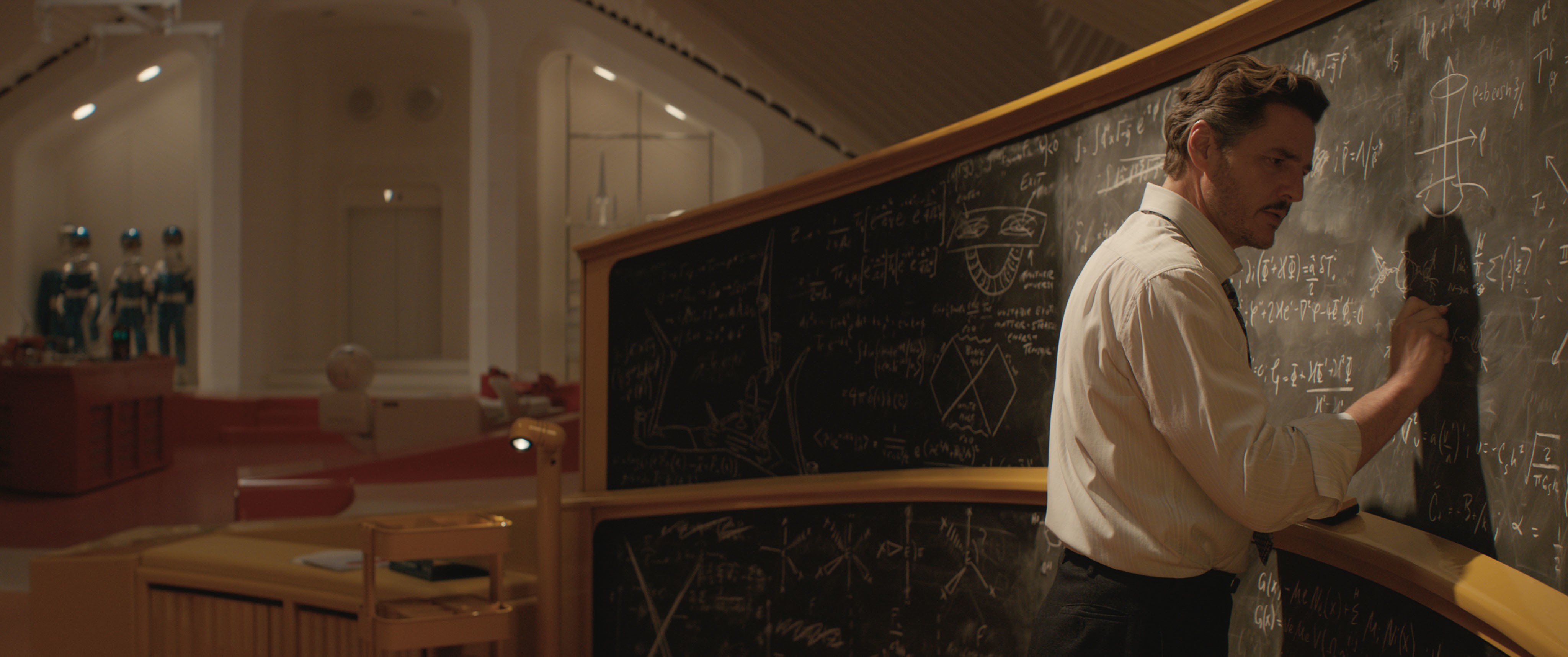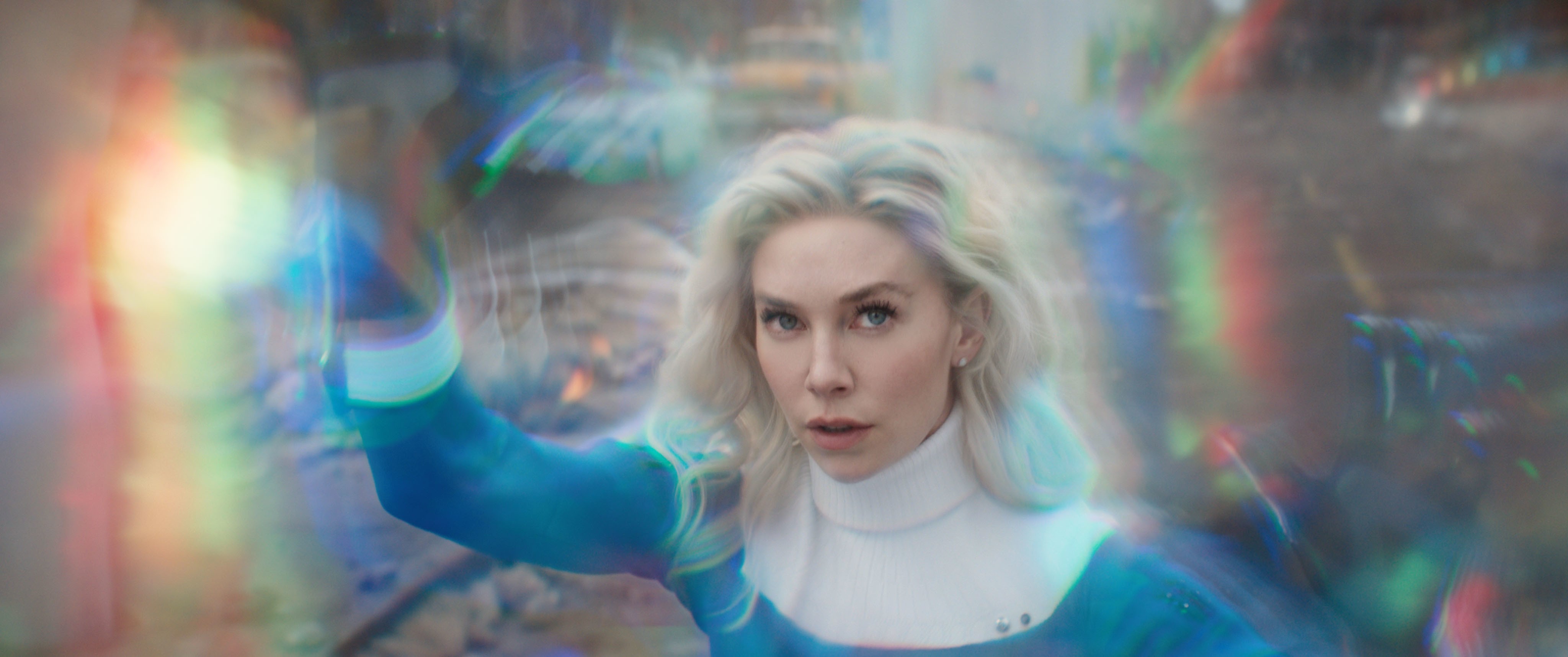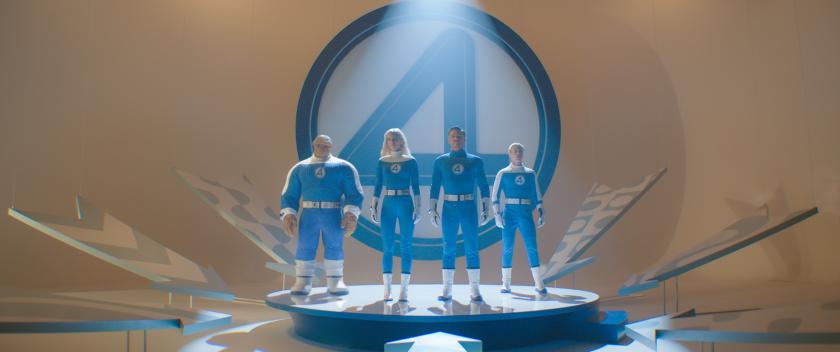Marvel goes back to its origins, gulping the fresh air of Stan Lee and Jack Kirby’s first hit comic The Fantastic Four in 1961. Ignoring recent flop film versions, it revels in a self-contained, space-age world as yet uncluttered with other costumed characters, and heroes who aren’t brooding vigilantes but human beacons of light.
We’re on an alternate Earth (isn’t every story?), in a retro-futurist dream of New York in ‘64, four years after scientist Reed Richards (Pedro Pascal, pictured below) flew a pioneering space mission with his pilot friend Ben Grimm (Ebon Moss-Bachrach), wife Sue Storm (Vanessa Kirby, pictured bottom) and her brother Johnny (Joseph Quinn). Cosmic rays pierced the rocket, turning Ben into the rock-skinned Thing, Reed into elasticated Mister Fantastic, Sue the Invisible Woman and Johnny the flaming Human Torch. The early comics’ adventures – battling the Mole Man, or the Red Ghost and his Super-Apes – skip by in a breezy montage during which the Earth unites behind these beloved heroes in the UN-like Future Foundation. Now the FF’s happy extended family are kicking back in their Baxter Building HQ, with a new member imminent, as Sue reveals she’s pregnant.
The early comics’ adventures – battling the Mole Man, or the Red Ghost and his Super-Apes – skip by in a breezy montage during which the Earth unites behind these beloved heroes in the UN-like Future Foundation. Now the FF’s happy extended family are kicking back in their Baxter Building HQ, with a new member imminent, as Sue reveals she’s pregnant.
The authoritative cast carries it all, especially Pascal, exercising Reed’s conscientious intellect, and Kirby’s Sue, his equal in a convincing marriage, channelling female and maternal power not as sexist limitation, but fierce fuel. Kasra Farahani’s production design situates them in a streamlined New York like visionary architects’ blueprints made real, with the FF’s pad vibing off Mad Men chic and moon-mission domestic dreams.
The Silver Surfer (Julia Garner) shatters the idyll by heralding the looming arrival of her planet-eating master Galactus (Ralph Ineson), sending the FF, heavily pregnant Sue included, through a cosmic portal to face the menace head-on. They discover this intimidating, armoured giant mid-meal, erupting through a consumed planet’s crust. After gleaming, dreamy Manhattan, we’re in a gaseous region of psychedelic slippage, blurry and strange. It’s an intriguing rethink of Kirby’s original crackling cosmic art, whose personal, muscular explosiveness, earthed by Lee’s warm hipster wit, forged cinema’s Marvel age. Galactus offers his visitors a devil’s bargain: hand over Sue’s cosmic-powered child, and the Earth is spared. This briefly poisons the FF’s charmed existence on their return, with mobs willing to make the trade. A speech from Sue quietens a world who still trusts the heroes’ word. Reed sets out their promise precisely: “The unknown will become known. And we will protect you.” Every nation then sets to work on his orders to evade Galactus’s wrath.
Galactus offers his visitors a devil’s bargain: hand over Sue’s cosmic-powered child, and the Earth is spared. This briefly poisons the FF’s charmed existence on their return, with mobs willing to make the trade. A speech from Sue quietens a world who still trusts the heroes’ word. Reed sets out their promise precisely: “The unknown will become known. And we will protect you.” Every nation then sets to work on his orders to evade Galactus’s wrath.
It’s a fantasy running counter to everything we expect of human behaviour, one hardwired into Lee and Kirby’s comics. Released into a world where the real US government despises international bonds and total war is rampant, here is an ideal deliberately conjured from a more optimistic if also war-torn decade. Its expert, brightly coloured escapism couldn’t be more timely.













Add comment